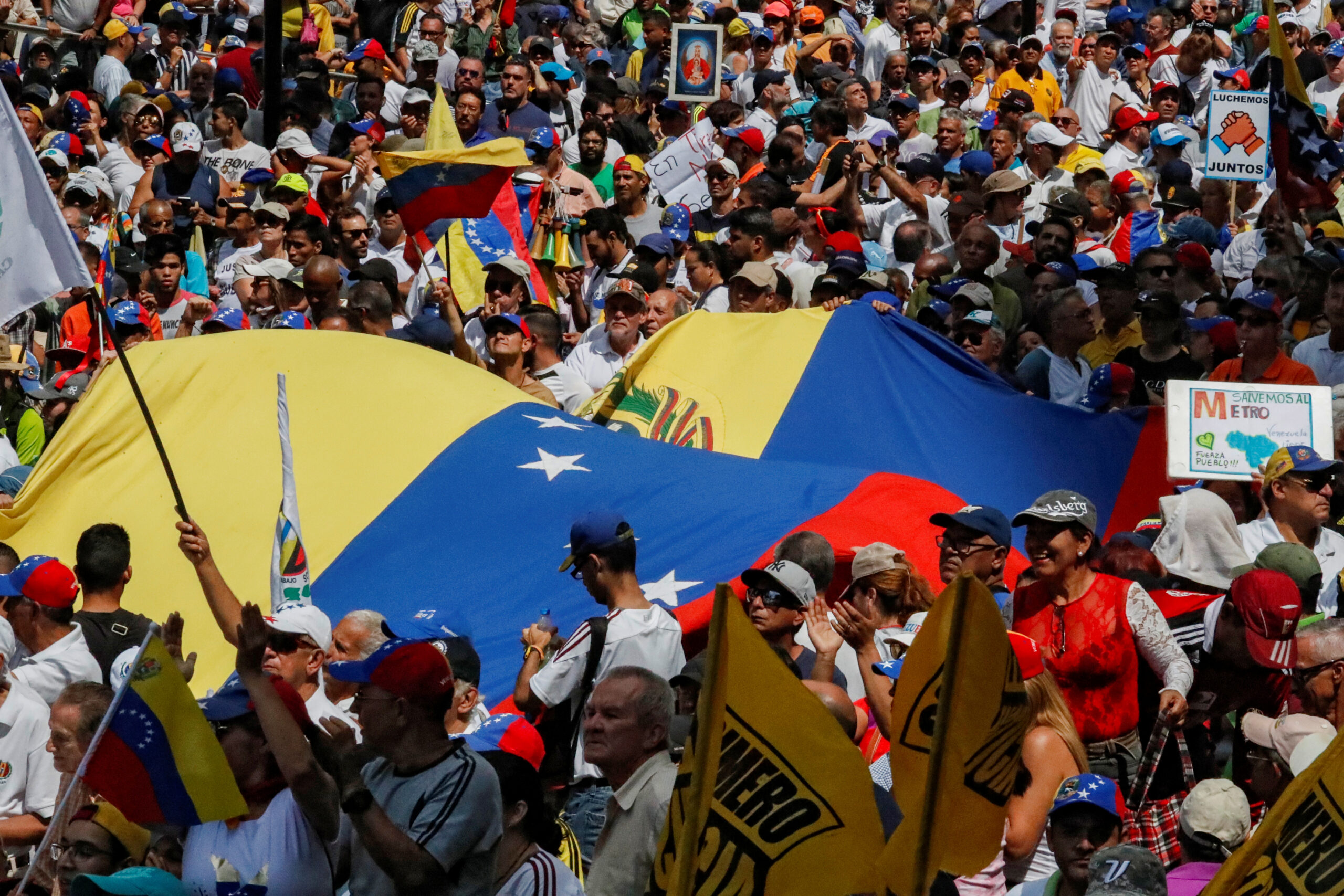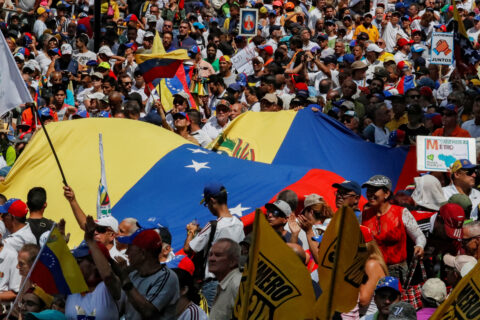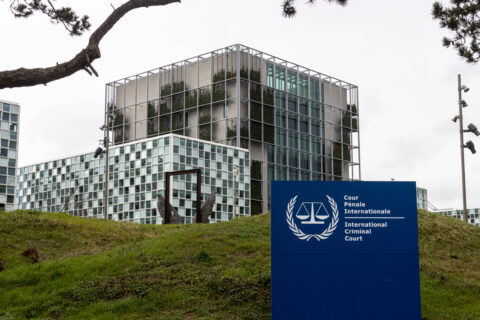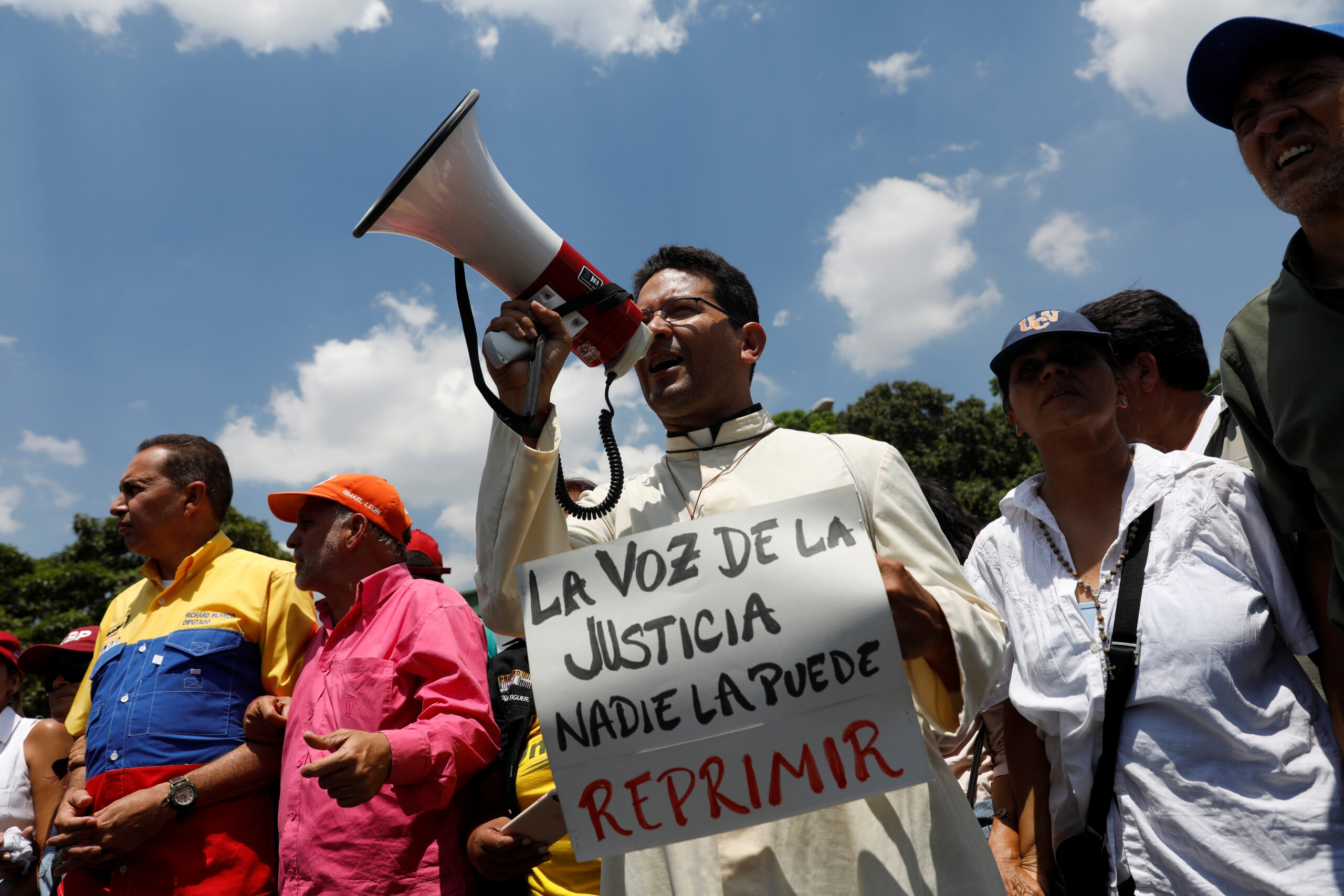This page contains information about work that was completed by CFJ prior to 2025. For more information on our current programs and events, read more about TrialWatch, Waging Justice for Women and The Albies.
An ongoing political and economic crisis in Venezuela led to an uprising of protests in February 2014. The Venezuelan authorities responded with systematic repression and extreme violence, resulting in the deaths of thousands of protesters, and other human rights violations, including torture, persecution, sexual violence, and arbitrary detention.
The Venezuelan authorities have so far failed to investigate allegations of serious human rights violations committed in the country, despite a UN Fact Finding Mission on Human Rights describing an “unremitting human rights crisis in the country.”
CFJ has worked on behalf of victims and survivors to secure accountability for the actions of security forces in Venezuela.
437 attacks Between February and April 2014, the United Nations’ Committee Against Torture documented 437 attacks against protesters
2,417 killings Between 2014 and 2020, the United Nations’ Fact-Finding Mission referred to 2,417 cases of killings caused by security forces
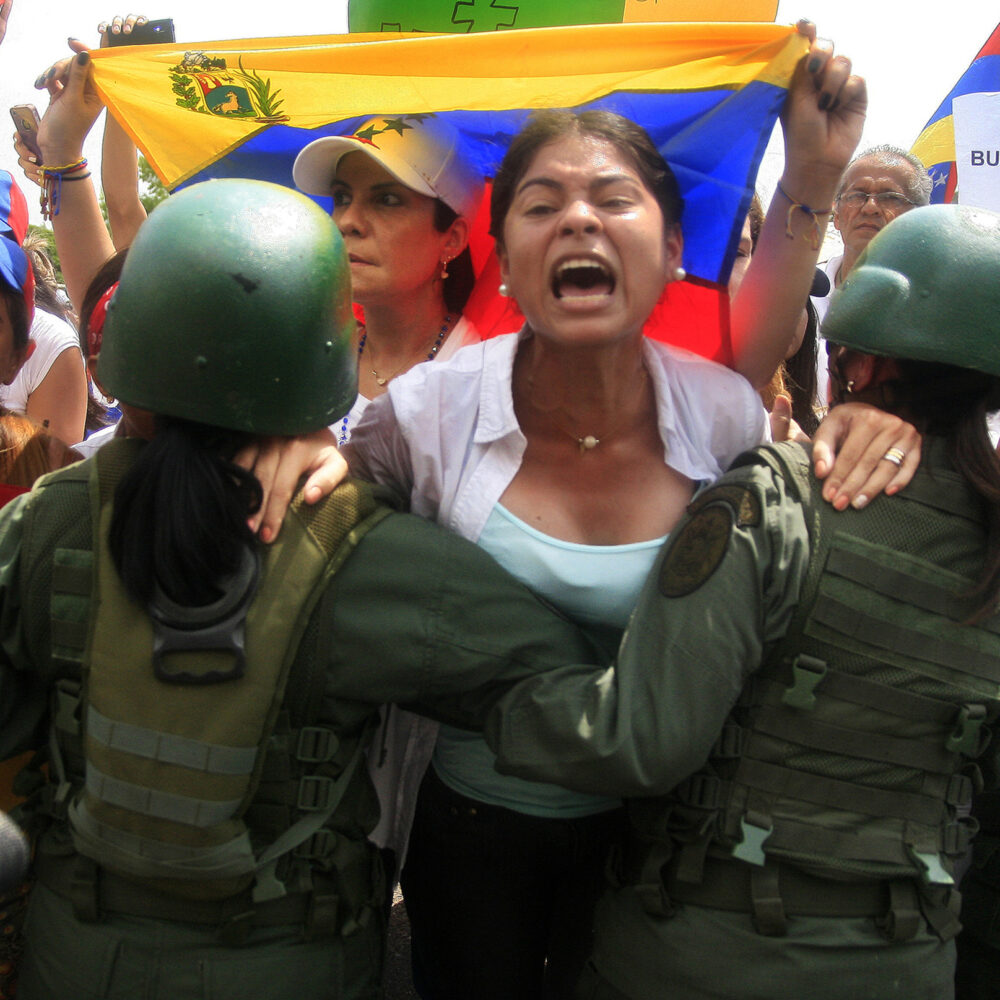
There is now a formal investigation into the grave crimes committed in Venezuela, and the speed with which Argentina responded to our complaint is a pivotal moment for the victims and their families. It offers renewed hope for all survivors who have long been awaiting their justice.
Legal Advocacy Director at CFJ
Complaint Before the Argentine Justice System
In June 2023, we filed a complaint before the Argentine federal justice system, urging Argentina to investigate the systematic and grave human rights violations committed in Venezuela.
The complaint was filed under the principle of universal jurisdiction, which allows countries to prosecute the most serious international crimes regardless of where they took place. Just one month later, in July 2023, the Argentine federal prosecutor opened the investigation based on CFJ’s findings. The work pointed to the potential criminal liability of Venezuelan security forces in committing crimes against humanity against victims linked or perceived to be linked to the government’s political opposition.
CFJ is representing family members of victims of indiscriminate violence and killings in Venezuela.
The complaint relied on over 15,000 pages of evidence of the crimes against humanity that have been committed in Venezuela.
You can learn more about which countries can use their own laws to wage justice for the world’s most serious international crimes, and how you can use our Justice Beyond Borders mapping tool.
Resources
In-depth reports from third parties on the situation in Venezuela and why the case was opened, as well as open-source testimony from victims and their families gathered by Archivo Público de Voces.
